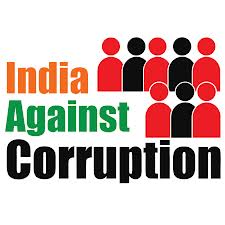India: The Quixotic Balancing of Benefits and Risks
 I used to say – if your business operates in China, you are likely violating the FCPA in one way or another. Permit me to revise my admonition: if your business operates in India, you are likely violating the FCPA in one way or another.
I used to say – if your business operates in China, you are likely violating the FCPA in one way or another. Permit me to revise my admonition: if your business operates in India, you are likely violating the FCPA in one way or another.
What has happened? From my own anecdotal experiences, which I know is not based on reliable sampling techniques, there appears to be a confluence of several factors: (1) a spike in corporate self-disclosures involving potential bribery in India; (2) a political environment which is still wrestling with the commitment to anti-corruption enforcement versus an attitude of “everyone does it, so grab yours now”; and (3) increased global business expansion into India as a more welcoming environment than China or Russia.
India is an attractive country for business expansion. By 2050, the Indian economy is predicted to exceed the size of China’s economy. India is steadily increasing its annual growth rate, just below that of China.
India’s economy has been closed to certain types of foreign businesses – retail and professional services stand out as the most significant. The Indian economy operates with a web of third-party agents and distributors around the country, especially third-parties who assist companies in securing government approvals such as permits, licenses, customs clearance, health inspections, zoning approvals and any other government regulatory function. In addition, there is well-established network of third-party agents who assist companies in the direct sales to Indian governments.
These third-party and distributor networks are a high-risk proposition for most companies. The benefits of entering India can be enormous, if your company is in the high-growth sectors for future expansion. The countervailing risks, however, can be significant.
India continues to hash out its political stance on corruption. On the one hand, the Indian public is adamant in its opposition to corruption. On the other hand, many Indian families with government employees know and expect certain “benefits” to improve their own economic situation.
India’s Transparency Internal ranking continues to hover in the 90s (out of 184 countries). Political protests continue in India demanding tough, anti-corruption reforms. Social activist Anna Hazare headed this movement starting in 2010. Anti-corruption legislation has stalled in the Indian Parliament. India continues to suffer corruption scandals in the defense industry, airline industry, and mining.
 A number of companies have disclosed investigations of potential corruption law violations involving conduct in India. These include: (1) Wal-Mart; (2) Finmeciana; (3) AB InBev; and (4) Beam, Inc. Within the last few years, four major companies settled anti-corruption cases with the Department of Justice and the SEC involving conduct in India: (1) Pride International; (2) Oracle; (3) Diageo; and (4) Tyco.
A number of companies have disclosed investigations of potential corruption law violations involving conduct in India. These include: (1) Wal-Mart; (2) Finmeciana; (3) AB InBev; and (4) Beam, Inc. Within the last few years, four major companies settled anti-corruption cases with the Department of Justice and the SEC involving conduct in India: (1) Pride International; (2) Oracle; (3) Diageo; and (4) Tyco.
Given the complex economic and political landscape in India, companies have to enter the country with their eyes wide open and with an anti-corruption compliance program tailored to the specific risks of the Indian economy. It is a careful balancing act but one that can be navigated.















I have always believed, as someone who travels there and speaks the language fluently, that there’s a huge market for FCPA investigations. People in India, either employees or distributors, don’t understand the risk exposure that they present to their source suppliers who may, or may not, be public companies.